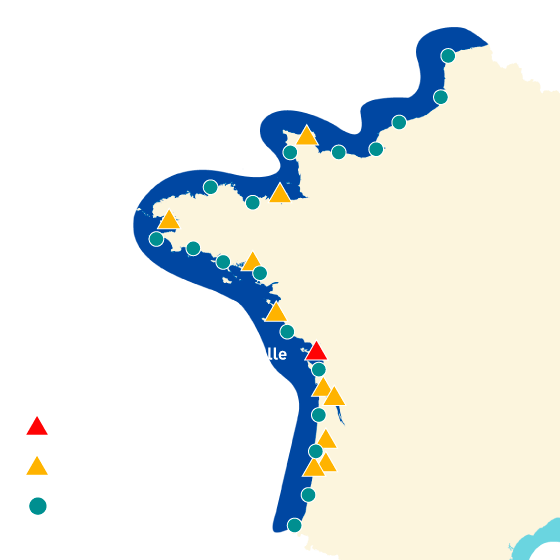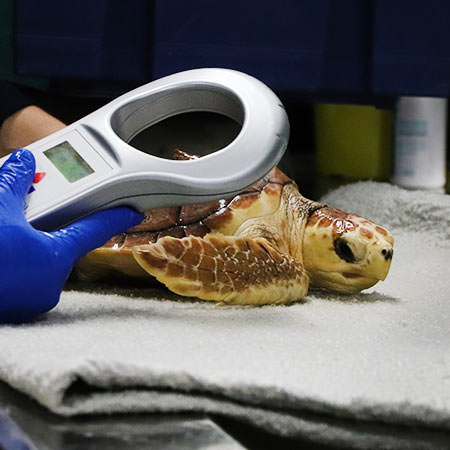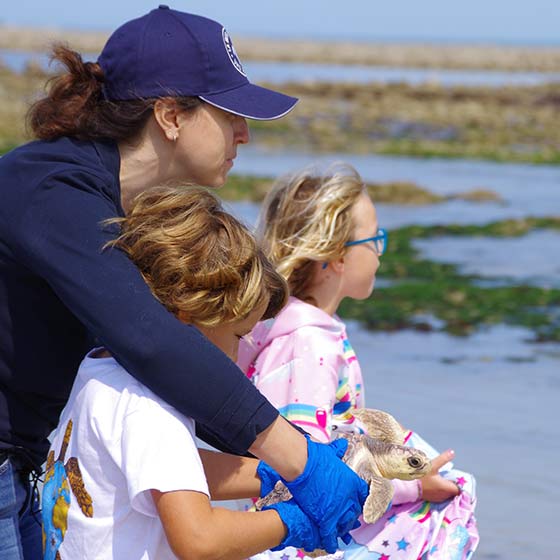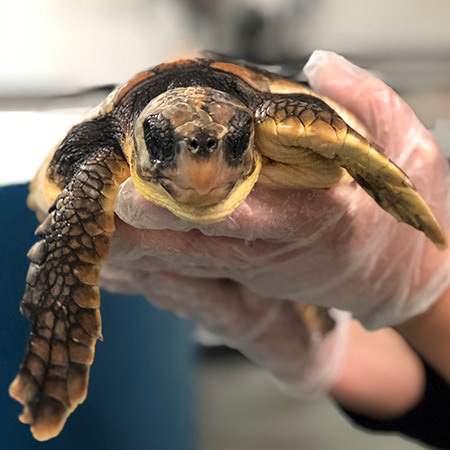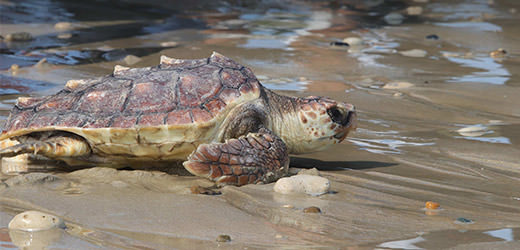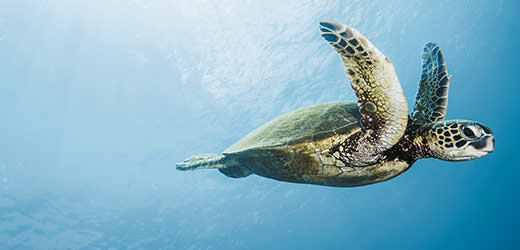Coordinate and animate the RTMAE
Finally, the CESTM of the Aquarium La Rochelle acts as an Observatory for marine turtles. It acts on the whole of the Channel-Atlantic seaboard. This represents a prospecting area of 4,159 km of coastal line and 264,000 km² in surface area.
To carry out this mission, he coordinates and leads the East Atlantic Marine Turtle Network (RTMAE). The latter mainly operates in the coastal zone within the framework of the scientific programme “Marine Turtle Observatory: stranding, rescue and observation networks for marine turtles in mainland France”, run by the MNHN (National Museum of Natural History).
This Network is made up of more than a hundred volunteers spread along the coast from the Spanish border to the Belgian border. The CESTM trains each member of the RTMAE to collect standardised data on marine turtles. At the end of this training, they are authorised to intervene within the framework of the scientific programme. To ensure effective management of marine turtles, the CESTM can also rely on relay structures such as aquariums.
